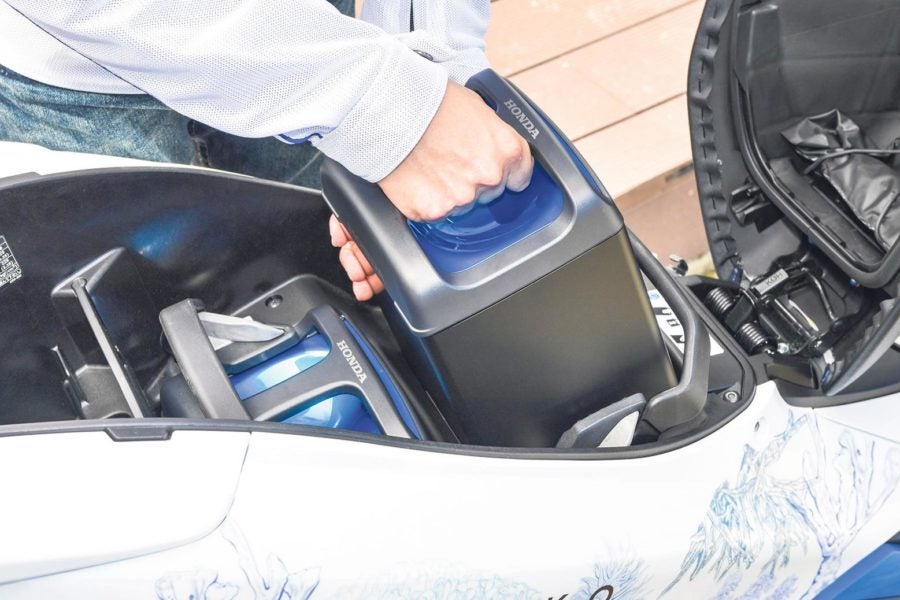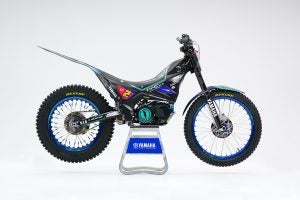Finally, after years of R&D, the all-Japanese battery consortium has announced its first major step forward. Honda, Kawasaki, Suzuki and Yamaha are all joint owners in a new company, operating under the name Gachaco. This new company will spearhead the Japanese manufacturers’ plans for quick-swap battery tech going forward.
While the Big Four all own a chunk of the new company, the largest shareholder is actually ENEOS, a massive Japanese petro-company (find out more about it here). ENEOS has a 51 percent stake; the second-largest shareholder is Honda, with 34 percent. Kawasaki, Yamaha and Suzuki all own 5 percent each.
With that in mind, it’s no surprise that Gachaco’s business plan is based around Honda’s swappable battery design. Honda has a bigger portion of the company than the other Japanese manufacturers, and has had a quick-swap battery on the market for a while already. Going forward, starting in Tokyo this fall, those Honda batteries will be available at ENEOS gas stations. That means that the other manufacturers can also take advantage of Honda’s battery availability, if they design their scooters to accept those units (and to be clear, these quick-swap batteries are definitely aimed at the scooter market).
Here’s what the press release says:
We believe that the five companies, which share the common goal of popularizing electric mobility, can further contribute to the realization of a recycling-oriented society by working together to provide sharing service of standardized swappable batteries for electric motorcycle.
Gachaco scheduled to launch the sharing service using Honda Mobile Power Pack e: which meets the common standards for electric motorcycle, by the autumn of 2022, starting from Tokyo and other major cities in Japan. Battery Exchange stations, Honda Mobile Power Pack Exchanger e:, will be located at convenient places —such as railway stations—and at ENEOS service stations.
However, the plan is to go much further than the step-through market:
In the future, besides electric motorcycles, Gachaco will promote the use of standardized swappable batteries for other applications, such as storage batteries installed at commercial facilities and private homes. In addition, expended batteries that are generated by the sharing service provided by Gachaco will be collected via the battery-as-a-service (BaaS) platform under review at ENEOS for secondary and tertiary use and finally recycling for cyclical battery usage.
Again, this especially makes sense for Honda, which has an incredibly strong power equipment line, which would benefit from a switch to battery power if cities begin to ban gas-powered equipment.
So. This isn’t The Future, exactly; Honda’s batteries are still a bit on the wimpy side when compared to the electric motorcycle competition. However, Gachaco provides a common foundation for all the Japanese manufacturers to work from, with a distribution plan going forward. It’s the biggest step towards electrification yet, for the Big Four.







